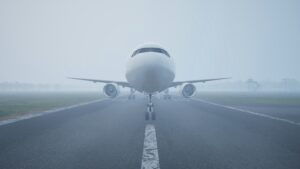Enhancing Operational Efficiency in Aviation: A Strategic Approach


The aviation industry, known for its complexity and high operational demands, faces an ever-growing need to enhance operational efficiency. With rising fuel costs, increasing passenger expectations, and stringent regulations, airlines and aviation operators must adopt strategic approaches to streamline operations and maintain profitability. In this article, we explore key strategies that can help improve operational efficiency in aviation, from technological innovations to operational best practices.
Leveraging Technology for Improved Operations
Technology is vital in transforming aviation operations, from flight scheduling to customer service. One of the most significant advancements in aviation technology is data analytics. By leveraging big data, airlines can predict demand more accurately, optimize flight routes, and effectively manage aircraft maintenance. Predictive analytics can also help forecast delays, enabling airlines to adjust operations proactively and minimize disruption to passengers.
Automation is another technology that can significantly enhance operational efficiency. Automated check-in systems, baggage handling, and self-boarding gates reduce the time spent on manual tasks, allowing staff to focus on more critical operational areas. Furthermore, with the rise of artificial intelligence (AI), airlines can improve decision-making processes, such as aircraft maintenance scheduling and crew management, to minimize delays and operational costs.
Optimizing Workforce Management
Effective workforce management is a key aspect of operational efficiency. With the continuous expansion of the aviation sector, managing a workforce that includes pilots, flight attendants, ground crew, and support staff can be a challenge. Implementing advanced workforce management systems can help airlines efficiently schedule shifts, ensure regulatory compliance, and monitor performance.
Airlines can optimize crew schedules using AI-driven scheduling software to ensure adequate rest periods, reduce fatigue, and prevent potential safety issues. Furthermore, real-time performance monitoring tools can help identify areas for improvement, such as training gaps or inefficient practices. Aviation operators can reduce costs, improve service quality, and enhance overall operational performance with a more optimized workforce.
Improving Fuel Management Practices
Fuel is one of the most significant operational expenses for airlines, making fuel efficiency a key component of operational optimization. Implementing advanced fuel management practices can lead to substantial cost savings. One such practice is the optimization of flight paths. By analyzing weather patterns, air traffic, and altitude, airlines can select the most efficient routes that minimize fuel consumption while maintaining schedule reliability.
Another critical strategy is improving aircraft fuel efficiency. Modern aircraft, such as the Boeing 787 and Airbus A350, are designed with advanced fuel-saving technologies. By investing in more fuel-efficient aircraft, airlines can reduce long-term fuel costs. Additionally, regular engine maintenance and monitoring can ensure that they are running at peak efficiency, further enhancing fuel savings.
Enhancing Communication and Coordination
Effective communication and coordination across different departments are essential for smooth operations in the aviation industry. Delays, whether due to weather, technical issues, or staffing problems, can quickly escalate without clear communication between the airline, ground crew, and air traffic control. Implementing integrated communication platforms can ensure that all relevant stakeholders are informed in real time about any issues that may affect flight schedules.
Additionally, better coordination between airlines and airports can lead to more efficient turnaround times. Streamlining processes such as baggage loading, fueling, and maintenance checks can reduce delays between flights. Coordinated efforts can also ensure passengers experience smoother connections, reducing layover times and improving overall customer satisfaction.
Sustainability Initiatives for Long-Term Efficiency
Sustainability has become a central focus in many industries, including aviation. Implementing sustainable practices not only helps protect the environment but can also contribute to improved operational efficiency. For example, reducing carbon emissions through sustainable aviation fuel (SAF) and optimizing aircraft routes to reduce unnecessary fuel consumption can lower operational costs and enhance the airline’s reputation.
In addition, airlines can improve sustainability by investing in eco-friendly technologies, such as electric ground vehicles and energy-efficient terminal facilities. By adopting these initiatives, airlines can reduce energy consumption, lower emissions, and contribute to the aviation industry’s overall sustainability goals while improving operational efficiency.
Streamlining Maintenance and Inspections
Effective aircraft maintenance is crucial for safety and efficiency. However, traditional maintenance schedules can often be reactive, leading to delays and unplanned maintenance costs. Adopting a predictive maintenance approach, supported by data-driven insights, can help anticipate issues before they become significant problems. For instance, sensors embedded in aircraft can monitor engine performance and detect anomalies in real-time. This allows for timely repairs or adjustments, reducing the likelihood of flight delays due to mechanical issues.
In addition to predictive maintenance, optimizing maintenance schedules can ensure that aircraft are kept in top condition while minimizing downtime. Airlines can use analytics to track various components’ usage and wear patterns, ensuring that maintenance is performed at the most opportune times. This reduces the frequency and cost of maintenance checks, allowing airlines to operate more efficiently.
